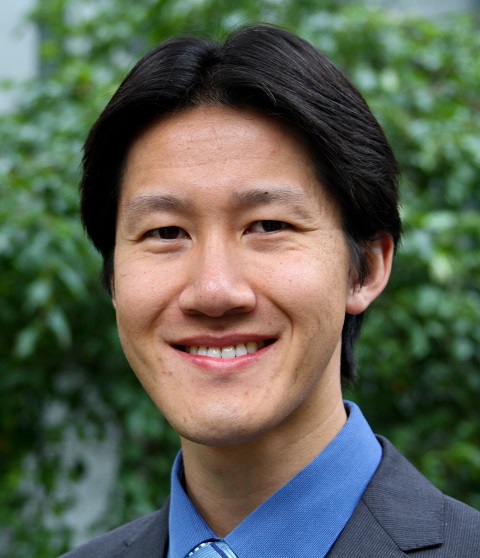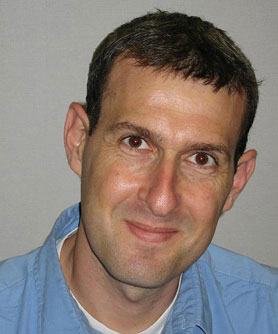Information Science & Technology Colloquium Series (Past Lectures)
2015
Friday, November 4
1:00 p.m.
IS Building, 3rd Floor Quiet Study
Dr. Ying Ding, associate professor, School of Informatics and Computing, Indiana University
“Data-Driven Science of Science”
Abstract: Data have fundamentally changed our daily lives. Data now can be bought and sold, and soon data analytics will become commodity as well. Data have significantly challenged every discipline to revisit its research road-map to stay competitive. This talk will point out the paradigm shift of bibliometrics (or science of science in a broader way) and illustrate some potential interesting research directions that are data-driven. It will showcase some concrete researches on data-driven discovery and data-driven decision making.
Bio: Dr. Ying Ding is an Associate Professor at School of Informatics and Computing and is currently associate director of data science online program at Indiana University. She has been involved in various NIH, NSF and European-Union funded projects. She has published 190+ papers in journals, conferences, and workshops, and served as the program committee member for 180+ international conferences. She is the co-editor of book series called Semantic Web Synthesis by Morgan & Claypool publisher. She is co-author of the book "Intelligent Information Integration in B2B Electronic Commerce" published by Kluwer Academic Publishers, and co-author of the book chapter in "Spinning the Semantic Web" published by MIT Press. She is the co-editor in chief for Journal of Data and Information Science, and serves as the editorial board member for four ISI indexed journals in Information Science and Semantic Web. She is the co-founder of Data2Discovery company advancing cutting edge technologies in data science. Her current research interests include data-driven knowledge discovery, Semantic Web, knowledge graph, scientific collaboration, and the application of Web Technology.
![]()
Monday, October 3, 2016
1:00 p.m.
IS Building, 3rd Floor Quiet Study
Kevin S. Xu, assistant professor, University of Toledo
“Link prediction in dynamic networks: Statistical models and evaluation metrics”
Abstract: The task of predicting future relationships in a network, known as link prediction, has been studied extensively in the literature. In dynamic networks where edges are both added and removed over time, the link prediction problem is more complex and involves predicting both newly added and newly removed edges. Most statistical models for such dynamic networks assume a hidden Markov-like structure that can accurately replicate the structure of a network at a particular time but cannot accurately replicate how these structures persist or evolve over time, resulting in poor link prediction accuracy. In this talk, Xu will introduce the stochastic block transition model, which improves link prediction accuracy by better replicating the addition and removal of edges over time yet maintains the interpretability of simpler models. Xu will also discuss challenges in evaluating link prediction accuracy in this dynamic network setting and provide several recommendations on selecting evaluation metrics.
Bio: Kevin S. Xu received the M.S.E. and Ph.D. degrees in Electrical Engineering: Systems from the University of Michigan in 2009 and 2012, respectively. He was a recipient of the Natural Sciences and Engineering Research Council of Canada (NSERC) Postgraduate Master’s and Doctorate Scholarships. He is currently an assistant professor in the EECS Department at the University of Toledo, and has previously held industry research positions at Technicolor and 3M. His main research interests are in machine learning and statistical signal processing with applications to network science and human dynamics.
![]()
Wednesday, April 20, 2016
1:15 p.m. - 2:30 p.m.
IS Building, 3rd Floor
Adam Perer, research scientist at IBM's T.J. Watson Research Center
“Data Driven Healthcare: Visual Analytics for Exploration and Prediction of Clinical Data”
Abstract: Healthcare institutions are now recording more electronic health data about patients than ever before, including data about patient conditions, lab tests, genomics, treatments, and outcomes. However, an open question remains on what one can do with all of this data. Many hope that if researchers tap into this real world observational data, the healthcare system can be leveraged to unearth insights to improve the quality of care. My research focuses on building interactive visual systems that support exploration so clinicians and researchers can derive such insights. During this talk, I will highlight examples of such systems, including visualizing the disease progression of patients and tools to support cohort analysis.
However, there are a growing number of healthcare professionals that wish to go beyond exploring data: they do wish to interpret their data but they also want to know what might happen next. Predictive modeling is becoming a common practice among clinical researchers to fill this gap, but these techniques are often black boxes that may limit domain experts’ contributions to the models. My current research investigates the role of visualization in prediction. In this talk, I will discuss systems that we’ve built to highlight how informative visualizations can assist in all stages of predictive modeling, from cohort selection to feature selection, and can result in more accurate and comprehensible predictions.
Bio: Adam Perer is a Research Scientist at IBM's T.J. Watson Research Center, where he is a member of the Healthcare Analytics Research Group. His research in visualization and human-computer interaction focuses on the design of novel visual analytics systems. He received his Ph.D. in Computer Science from the Human-Computer Interaction Lab at the University of Maryland, advised by Ben Shneiderman. .His work has been published at premier venues in visualization, human-computer interaction, and medical informatics.
![]()
2014
Thursday, November 13, 2014
Noon
IS Building, Third Floor
Dr. Bruno Ribeiro, Postdoctoral Fellow, School of Computer Science, Carnegie Mellon University
In Age of Information Overload, Ability To Sustain Attention Determines Internet Startup Success
Driven by outstanding success stories of Internet startups such as Facebook and The Huffington Post, recent studies have thoroughly described their growth. These highly visible online success stories, however, overshadow an untold number of similar ventures that fail. The study of website popularity is ultimately incomplete without general mechanisms that can describe both successes and failures. In this talk I will present six years of the daily number of users (DAU) of twenty-two membership-based websites – encompassing online social networks, grassroots movements, online forums, and membership-only Internet stores – well balanced between successes and failures. I will then show a combination of reaction-diffusion-decay processes whose resulting equations seem not only to describe well the observed DAU time series but also provide means to roughly predict its evolution. My model also provides a path for an automatic DAU-based classification of websites into self-sustainable v.s. unsustainable, also uncovering whether the startup growth was mostly driven by marketing & media campaigns or word-of-mouth adoptions.
This work been featured at CNET, ACM TechNews, and Business Insider. An extended summary can be found at the CMU press release: http://www.cs.cmu.edu/news/carnegie-mellon-model-predicts-growth-death-facebook-and-other-membership-based-websites
Bio: Bruno Ribeiro is a Postdoctoral Fellow at the Carnegie Mellon University School of Computer Science under Christos Faloutsos. Dr. Ribeiro completed his Ph.D. in 2010 at University of Massachusetts Amherst. Between 2012 and 2013 Dr. Ribeiro was a visiting researcher at the Department Physics at Northeastern University. His interests are in data mining, complex systems, and computer networks.
![]()
Thursday, October 16, 2014
Noon (coffee reception to follow at 1:30)
IS Building, Third Floor
Dr. Jimeng Sun, Associate Professor, School of Computational Science and Engineering, Georgia Institute of Technology
Do it once, do it right: Building a scalable predictive modeling platform for healthcare applications
Predictive modeling plays an important role in biomedical research. Thanks to the explosion of Electronic Heart Records (EHR), the interest of building predictive models using EHR data have skyrocketed in recent years. However, the methodologies for develop a predictive model are still labor intensive and ad-hoc. Such rudimentary approaches have hindered the quality and throughput of healthcare and biomedical research.
In this talk, we promote a holistic approach that combines 1) algorithm development and 2) system building. We believe such a specialized big-data platform that can significantly speedup the development of robust and accurate predictive models for biomedical research. I will present different projects covering both aspects: Algorithms: I will first describe our work on computational phenotyping from EHR using sparse tensor factorization; then I will present patient similarity method using supervised distance metric learning System: Finally I will introduce a parallel predictive modeling platform using Hadoop for enabling parallel model exploration on big data.
Jimeng Sun is an Associate Professor of School of Computational Science and Engineering at College of Computing in Georgia Institute of Technology. Prior to joining Georgia Tech, he was a research staff member at IBM TJ Watson Research Center. His research focuses on health analytics using electronic health records and data mining, especially in designing novel tensor analysis and similarity learning methods and developing large-scale predictive modeling systems.
Dr. Sun has worked on various healthcare applications such as computational phenotyping from electronic health records, heart failure onset prediction and hypertension control management. He has collaborated with many healthcare institutions including Vanderbilt university medical center, Children's healthcare of Atlanta, Center for Disease Control and Prevention (CDC), Geisinger Health System and Sutter Health.
He has published over 70 papers, filed over 20 patents (5 granted). He has received ICDM best research paper award in 2008, SDM best research paper award in 2007, and KDD Dissertation runner-up award in 2008. Dr. Sun received his B.S. and M.Phil. in Computer Science from Hong Kong University of Science and Technology in 2002 and 2003, and PhD in Computer Science from Carnegie Mellon University in 2007.
![]()
Friday, February 21, 2014
11:00 a.m.
IS Building, Room 501
Dr. Brian Uzzi
Kellogg School of Management, Northwestern University
Atypical Combinations and Scientific Impact
The claim that science is spurred on when atypical ideas are united is often purported but rarely tested. Indeed, much science intentionally builds in convention. From this viewpoint, the relationship between atypical and conventional knowledge is critical but understudied. Here, we analyzed all 17.9 million web of science research papers in the web of science, characterizing each paper’s conventional and novel combinations of prior work. We find that the premium put on novelty is at odds with the reality that most scientific work draws on familiar mixtures of knowledge. The highest impact papers interject novelty into otherwise unusually conventional combinations of prior work and are twice as likely to top the citation distribution. Finally, teams are more likely than solo scientists to interject novel combinations, suggesting that the exceptionalism of teams is an ability to incorporate novelty.
Brian Uzzi is the Richard L. Thomas Distinguished Professor of Leadership at the Kellogg School of Management, Northwestern University. He also co-directs NICO, the Northwestern University Institute on Complex Systems, is the faculty director of the Kellogg Collaboration and Complexity initiative (KACI), and holds professorships in Sociology and the McCormick School of Engineering. He has lectured and advised companies and governments in more than 25 countries and been on the faculties of INSEAD, University of Chicago, and Harvard University. In 2007-2008, he was on the faculty of the University of California at Berkeley where he was the Warren E. and Carol Spieker Professor of Leadership. Additional information on Professor Uzzi may be found here: http://www.kellogg.northwestern.edu/faculty/uzzi/htm/
2013
Thursday, November 14, 2013
Noon
IS Building, 3rd Floor Student Collaboration Center
Dr. Jürgen Pfeffer, Assistant Research Professor, Institute for Software Research, Carnegie Mellon University
Network Structures Tell Stories
Abstract: In the area of Social Network Analysis a wide range of metrics has been developed to analyze the positions of actors (centrality measures) or to identify communities and sub-groups in networks. Less attention is paid to indices that describe entire networks or groups of nodes. However, structural perspectives on networks can tell us interesting stories about dynamics within these systems. When looking at a single actor and the connectivity of his network alters (ego-network) we can observe that personality or living conditions can have huge impact on structural properties. Even more, we can apply the insights from traditional social science studies with small groups and from qualitative ego-network studies to large-scale network analysis to identify actors with interesting link structures or social behavior.
Bio: Jürgen Pfeffer earned a B.S. degree in Computer Science, an M.S. degree in Computer Science Management, and a Ph.D. degree in Business Informatics from Vienna University of Technology. He was working in industry and non-university research institutes for ten years before he joined the Institute for Software Research at Carnegie Mellon University in Pittsburgh (USA) as a Post-Doctoral Associate in December 2010. Since September 2012 Jürgen Pfeffer has been an Assistant Research Professor in the School of Computer Science at Carnegie Mellon University.
Pfeffer’s research focus lies in the computational analysis of organizations and societies with a special emphasis on large-scale systems. He is particularly interested in methodological and algorithmic questions as well as challenges arising from analyzing such systems. His research combines traditional network analysis and dynamic network analysis theories and methods with up-to-date science from the areas of visual analytics, geographic information systems, system dynamics, and data mining. Most of Pfeffer’s work is at the intersection of computer science and social science.
![]()
Thursday, November 7, 2013
Noon
IS Building, 3rd Floor Student Collaboration Center
Dr. David Lazer, Professor, Northeastern University
Opportunities and Challenges in Using Big Data to Understand Human Systems
Abstract: An increasing fraction of human interactions are digitally captured. These digital breadcrumbs create enormous opportunities for ground breaking social science, to look at societal phenomena at a scale and granularity heretofore impossible. This talk will discuss what some of the potential scientific opportunities are, as well the potential barriers to the emergence of a “computational social science".
Bio: David Lazer is Professor of Political Science and Computer and Information Science, Northeastern University, Co-Director, NULab for Texts, Maps, and Networks. His research focuses on the nexus of social networks, computational social science, and collaborative intelligence. He is a reviewing editor for Science, and his research has been published in such journals as Science, Proceedings of the National Academy of Science, the American Political Science Review, and the Administrative Science Quarterly.
Additional information on Professor Lazer may be found by visiting: http://davidlazer.com
![]()
April 11, 2013
10:30 a.m.
IS Building, Room 403
Ananda Gunawardena, Associate Teaching Professor of Computer Science at Carnegie Mellon University (CMU)
An analytics driven instructional strategy using Classroom Salon
Classroom Salon (http://classroomsalon.org) is a platform researched and developed at Carnegie Mellon University. It is a collaborative project between Computer Science and English Departments. The platform turns your texts and videos into fine-grained community discussions and supports "deep" discussions under any passage or video frame and provides analytics to drive instructions and assessment. Teachers and students can use document and video analytics to organize themselves into communities of practice. In this talk, we will introduce the platform, its features and best practices. We will also discuss research findings from one of its pilot projects at University of Wisconsin-Milwaukee that included over 1000 students. The research project was funded by the Gates Foundation. Its current efforts include integration with course management systems such as Blackboard and supporting "flipped Learning" models. Classroom Salon currently supports over 12,000 academic users with nearly
2000 salons.
Bio: Dr. Ananda Gunawardena is an Associate Teaching Professor of Computer Science at Carnegie Mellon University (CMU) since 1998. He research and develops educational applications including pen-based computing applications for tablet PC's and social learning applications such as classroom salon. He has won grants from NSF, Microsoft research, Gates Foundation, i6 Innovation fund, Mellon Foundation, HP, Qatar Foundation and several other organizations. He has authored two textbooks in Computational Linear Algebra published by Springer-Verlag and Thompson and has published over 40 referred research articles in Journals. His books have been translated in Chinese and other languages. He is involved with number of startup companies and is the founder of Textcentric, Inc, a company providing customized textbook publishing software to major
software publishing groups and FLIP, a corporate training company. He serves on several boards and has won many awards including such teaching awards as the Jesse Jones service award and the Sri Lanka Foundation’s Exceptional Achievement Award, the highest honor given to a Sri Lankan expatriate.
More recently he has been recognized as a HP Catalyst Fellow, a honor given to less than 15 individuals worldwide, who have made significant contributions to STEM education. He will be receiving his Catalyst Fellow award in Brazil in April 2013.. He received a B.Sc Mathematics special honors degree from University of Colombo, Sri Lanka, M.S. in computer science and Ph.D. in computational mathematics from The Ohio University and studied software Engineering at University of Texas at Austin.
![]()
2012
September 25, 2012
11:00 a.m.
IS Building, Room 501
Meet the Speaker 30 minutes prior to the Colloquium
Oded Nov, Assistant Professor, Polytechnic Institute of New York University
Personality-Targeted Design: Theory, Experimental Procedure, and Preliminary Results
We introduce a framework for personality-targeted design, much like a medical treatment applied to a person based on her specific genetic profile. In a series of studies, we examine the effect of the interaction between personality traits and theory-driven UI features on users’ online behavior, and demonstrate the effectiveness of interactionist design.
Bio: Oded Nov is an Assistant Professor at the Polytechnic Institute of New York University. He received his PhD from Cambridge University. His research focuses on motivational, dispositional and social aspects of information systems and social media. Dr. Nov is a recipient of the National Science Foundation CAREER Award.